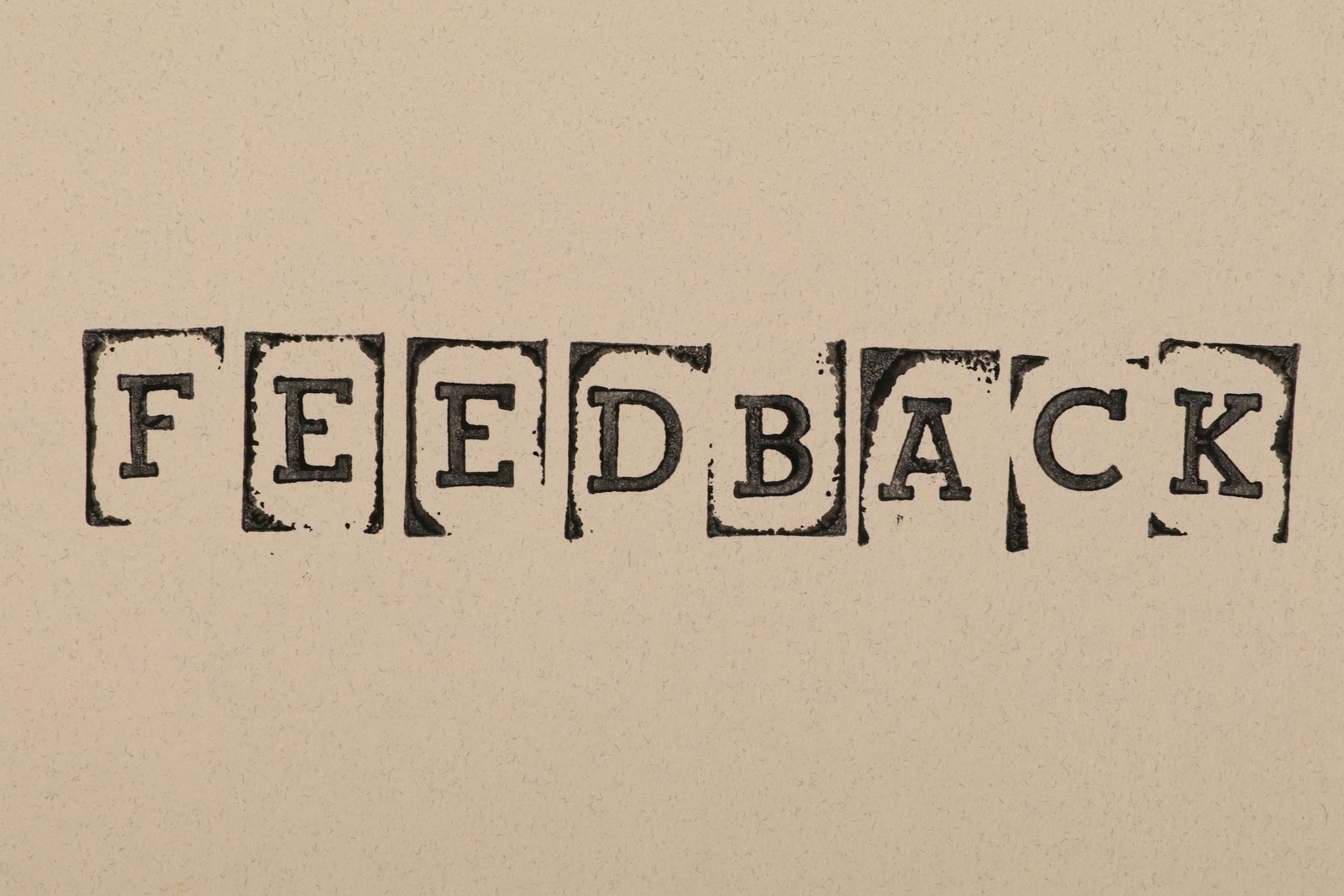Constructive criticism is an essential part of professional growth, but it can be challenging to accept and apply.
- Learn how to respond positively to feedback and use it as a tool for career development.
- Discover strategies to maintain a growth mindset, improve your performance, and strengthen workplace relationships by handling criticism effectively.
Receiving constructive criticism at work can be a daunting experience, but it’s a crucial element of personal and professional development. Whether the feedback comes from a supervisor, colleague, or client, how you respond to criticism can significantly impact your growth and success in your career.
In this article, we’ll explore six of the best ways to handle constructive criticism at work. These strategies will help you embrace feedback with an open mind, turn it into actionable improvements, and ultimately advance your career.
1. Listen Actively Without Interrupting
What It Is: Active listening means fully concentrating, understanding, and responding thoughtfully to what the other person is saying, without interrupting or getting defensive.
Why It Works: By listening carefully to constructive criticism, you demonstrate respect and a willingness to improve. According to Harvard Business Review, active listening is key to receiving feedback effectively, as it allows you to fully understand the other person’s perspective before responding.
How to Do It:
- Focus on the Speaker: Give your full attention to the person offering feedback. Avoid distractions and make eye contact to show that you are engaged.
- Avoid Interrupting: Let the person finish their thoughts before you respond. This allows you to hear the full feedback and consider it carefully.
- Take Notes: If the feedback is detailed, jot down key points. This shows that you are taking the criticism seriously and gives you something to reflect on later.
2. Stay Calm and Manage Your Emotions
What It Is: Staying calm involves keeping your emotions in check, even when the feedback is unexpected or hard to hear. It’s important to manage any initial feelings of defensiveness or frustration.
Why It Works: Responding emotionally to criticism can cloud your judgment and lead to reactions you might regret. The Journal of Positive Psychology suggests that staying calm allows you to process the feedback more rationally, making it easier to focus on the constructive aspects and how to apply them.
How to Do It:
- Take a Deep Breath: If you feel your emotions rising, take a few deep breaths to help calm yourself before responding.
- Pause Before Responding: Give yourself a moment to collect your thoughts after hearing the feedback. This pause can help you avoid saying something impulsive.
- Keep Your Body Language Neutral: Maintain open and neutral body language. Avoid crossing your arms, frowning, or other gestures that might suggest defensiveness.
3. Ask for Clarification if Needed
What It Is: If any part of the feedback is unclear, ask questions to gain a better understanding. Clarification ensures that you fully grasp the points being made and can address them effectively.
Why It Works: Seeking clarification shows that you are genuinely interested in improving and that you take the feedback seriously. According to Forbes, asking questions can also demonstrate your commitment to personal growth and help you better apply the feedback.
How to Do It:
- Ask Specific Questions: If something isn’t clear, ask for specific examples or more details. For instance, “Can you give me an example of when this issue occurred?”
- Restate the Feedback: Repeat the feedback in your own words to confirm your understanding. For example, “So, you’re saying I need to improve on… Is that correct?”
- Seek Advice on Improvement: If you’re unsure how to address the criticism, ask for suggestions on how you can improve. This shows initiative and a proactive approach.
4. Reflect on the Feedback
What It Is: Reflection involves taking time to think about the feedback you’ve received, considering its validity, and determining how you can apply it to improve your performance.
Why It Works: Reflecting on feedback allows you to process it thoroughly and decide how best to use it to your advantage. According to McKinsey & Company, effective reflection can lead to meaningful personal development and better job performance.
How to Do It:
- Review the Feedback: After the initial discussion, take some time to review the feedback on your own. Consider the points made and how they align with your self-perception.
- Identify Patterns: Look for patterns in the feedback, especially if you’ve received similar comments from different people. This can help you pinpoint areas that need improvement.
- Plan Your Next Steps: Based on your reflection, decide what specific actions you will take to address the feedback. Set measurable goals to track your progress.
5. Take Action and Implement Changes
What It Is: Implementing changes means taking the feedback you’ve received and actively working to improve in the areas highlighted. This might involve developing new skills, changing behaviors, or adjusting your approach to work.
Why It Works: Taking action demonstrates that you are committed to growth and are willing to make the necessary adjustments to improve your performance. Harvard Business Review notes that those who act on constructive criticism tend to progress more quickly in their careers.
How to Do It:
- Set Specific Goals: Identify clear, actionable goals based on the feedback. For example, if the feedback was about time management, set a goal to improve your efficiency with specific tasks.
- Monitor Your Progress: Regularly check in with yourself or your supervisor to evaluate how well you’re implementing the changes and where further adjustments might be needed.
- Seek Continuous Feedback: After making changes, ask for feedback on your progress. This not only shows your commitment to improvement but also provides additional guidance.
6. Express Gratitude
What It Is: Showing appreciation for the feedback, even if it’s difficult to hear, demonstrates professionalism and a positive attitude toward personal development.
Why It Works: Expressing gratitude acknowledges the effort the other person has put into helping you improve. It also fosters a positive relationship and encourages a culture of open, constructive feedback. Forbes highlights that gratitude in the workplace can lead to better collaboration and a more supportive environment.
How to Do It:
- Thank the Feedback Giver: At the end of the conversation, thank the person for their insights. For example, “Thank you for bringing this to my attention. I appreciate your input and will work on making the necessary improvements.”
- Follow Up: After you’ve had time to reflect and take action on the feedback, consider following up to share your progress and thank them again for their guidance.
- Recognize the Value: Remind yourself of the long-term benefits of constructive criticism and how it contributes to your growth and career success.
By effectively handling constructive criticism, you can turn feedback into a powerful tool for personal and professional growth. Embracing these best practices will help you build resilience, improve your performance, and strengthen your relationships at work, ultimately contributing to your career success.






